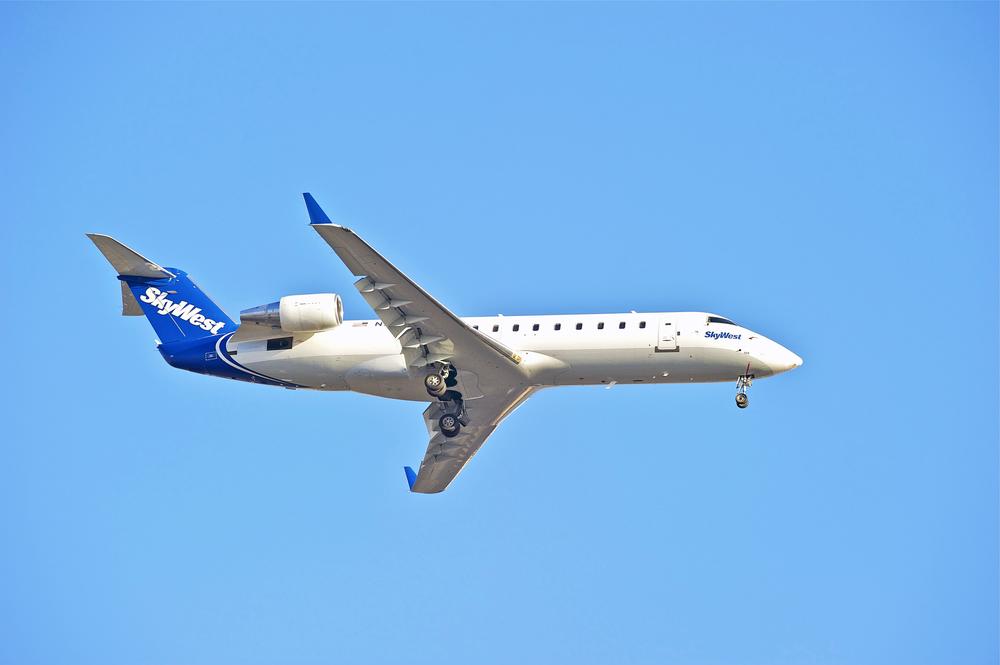SkyWest Barred from Dropping Regional Flights in Underserved Communities

Reuters reports SkyWest will need to maintain routes to 29 cities throughout Summer 2022 unless another airline can be identified to replace those flights.
Air Service Considered Essential for Smaller Communities
Under the plan proposed by SkyWest, the 29 communities slated to lose their service includes Decatur Airport (DEC) in Illinois, Sioux Gateway Airport (SUX) in Sioux City, Missouri, and Eau Claire Chippewa Valley Regional Airport (EAU) in Wisconsin. Under the federal Essential Air Service subsidy program, the carriers reportedly earn $3 million in government funds to maintain essential service to each of the airports.
However, the U.S. Department of Transportation will not allow SkyWest – operating codeshares for United Airlines, among others – to remove those routes without a replacement in place. Instead, the airline must continue to serve those airports through at least July 8, 2022, and for a rolling 30-day period until another airline can begin flying to those airports.
The DOT is asking for proposals from other airlines by April 11, 2022 to replace SkyWest on those routes. In a statement to Reuters, the carrier said they will “work with officials toward solutions that would enable us to reconnect these communities to the National Air Transportation System in the future, and we are committed to remaining flexible and adjusting our plans if the situation improves more quickly than currently expected.”
In addition to flying United Express routes, SkyWest operates flights on behalf of Alaska Airlines, American Airlines and Delta Air Lines.
Other Carriers Cut Service Due to Oil Prices
While a lack of staff is to blame for SkyWest’s plan to eliminate routes, other airlines say oil prices are forcing them to reconsider flights. Both Alaska and Allegiant Air say they will cut flights in the second quarter of 2022 due to increased pricing in jet fuel.






















Definitely agree with @strickerj. If this was the contract they signed up for, they should absolutely be held to it. But also, why are these cities receiving subsidised air service anyways? I totally understand for certain places, particularly islands with small populations, but Decatur Airport is less than one hour (40 miles) from a nearby airport (the airport which serves Springfield) and less than 3 hours from at least 4 international airports (St Louis, Indianapolis, Midway and O'Hare). I don't really see a good argument for subsidising flights. If these midwestern cities need better connections, maybe invest in rail links. Surely that is far more economical and better at providing benefits. (I have a hard time imagining that a 1 hour flight to chicago is really that much more advantageous than a 3 hour train journey)
I thought Sioux City was in Iowa? ;)
As for the policy, I'm torn on this one. I understand how smaller, rural communities end up economically disadvantaged without transportation links to bigger hubs, and I would think the subsidies are constitutional as part of facilitating interstate commerce.
That said, I'm not sure they're really necessary in some of these cases. I always thought these were supposed to be for places that are really detached, such as in the western states or Alaska. All of the examples here are within 2 hours' drive of cities with unsubsidized air service.
That said, if maintaining the service until a replacement is established is a requirement, then it should be enforced. SkyWest certainly knew what they were agreeing to when they accepted the subsidies.
Poor Sioux City has been in steady decline for 50 years. Prosperous, booming Sioux Falls is 90 minutes to the north and thriving Omaha is a quick 90 minutes south. It's no wonder SUX gets just one flight a day to ORD and DEN.
Almost certainly, these subsidies for EAS and the agreements were done well before COVID, so it was a completely different world then. Skywest didn't know what they were getting into any better than the general public knew what we were getting into once COVID hit. But the world changed in March 2020. To an extent that no one could have imagined. Who would have predicted in late 2019 what we would be going through the last couple of years, especially with the travel industry. Since the travel slump after 9/11 until March 2020, the travel industry had only known growth.
look, a bit conflicted here too, but there's no way SkyWest could have predicted what was going to happen over the last couple of years - regarding the EAS service or otherwise.
Let's call it what it is. Taxpayer subsidies not government funds
I can't wait to hear your hot take on rural broadband.
Like the roads you drive on.
Roads are an essential function of government. EAS is earmarked pork.